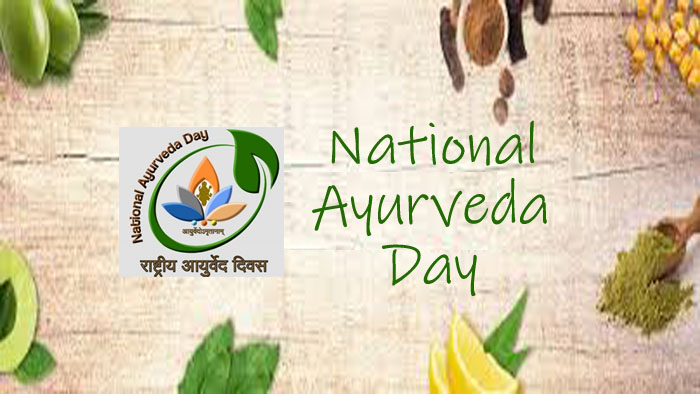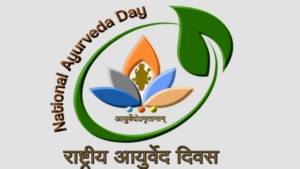National Ayurveda Day

National Ayurveda Day is celebrated on Dhanwantari Jayanti (Dhanteras) which falls on the thirteenth lunar day of Krishna Paksha (dark fortnight) of Kartik month. This day marks the birth date of Lord Dhanvantari, which occurs two days before Diwali on Dhanteras.
The first “National Ayurveda Day” was observed on 28 October 2016 and every year National Dhanvantri Ayurveda Award is given which comprises a Citation, a Trophy (Dhanwantari Statue), and a Cash reward of Rupees five lakh by the Ministry of AYUSH.
In 2026 National Ayurveda Day will be celebrated on 23rd September. National Ayurveda Day would be celebrated on 23rd September every year from 2025 onward.
Dhanvantari is the god of Ayurveda an avatar of Lord Vishnu who imparted the wisdom of Ayurveda for the betterment of mankind and to help rid it of the suffering of disease. It is very common in Hinduism to pray to Dhanvantari seeking his blessings for sound health for themselves and others, especially on Dhanteras or Dhanwantari Trayodashi.
Ayurveda is generally defined as ‘Science of life‘ we translate ‘Ayur’ as life and ‘Veda’ as science. Sushruta defines health as Samdosha, samagni, samdhatu malakriyah Prasannatma, indriyas manah swath abhidayate. This means that health is balanced when all three doshas or bioenergy and Agni or metabolic process are balanced, and excretions are in proper order. When atman or soul, senses, manah, or intellect are in harmony with internal peace, svastha or optimal health is achieved.
Compare this with the definition of health that the World Health Organization uses: health is a complete state of physical, mental, and social well-being, and not merely the absence of disease or infirmity. So we see how strongly the principles of Ayurveda are aligned with the definition of health propagated by the WHO. Health is the complete state of wellbeing and not the absence of disease. Today, Ayurveda is relevant globally because of its holistic and comprehensive approach to health.
“One who has balanced Doshas (primary life forces), balanced Agni (fire of digestion), properly formed Dhatus (body), proper elimination of Malas (bodily waste), well-functioning bodily processes and happiness of mind, soul & senses is considered to be swastha (Healthy).” – Shushurta Samhita
Suggested Read: Choti Diwali
Ayurveda Day Pledge
“I pledge to make Ayurveda an integral part of my daily life and thereby enable good health and well-being for myself, my family, and my community, in harmony with nature.”
According to the Ministry of AYUSH “Ayurveda is perceived as one of the most ancient and well-documented systems of medicine equally relevant in modern times. Its holistic approach whether for healthy individuals or for diseased ones remains unparalleled. Prevention of disease and promotion of health is the main aim of Ayurveda. Lord Dhanvantari is considered a divine propagator of Ayurveda. He is conferred with the virtues of granting health and wealth. Therefore, Dhanvantari Jayanti was preferred for the celebration of Ayurveda Day to nationalize this system of medicine which can prove to be a cornerstone for its ultimate globalization.”
About the logo of Ayurveda Day

The silhouette of lord Dhanwantari in the center of the logo represents the lord of Medicine. The five petals in the logo symbolize Pancha Mahabhuta and the three circles beneath signify Vata, Pitta, Kapha, the fundamental principles of Ayurveda. An oval leaf encircling the elements depicts the essence of healing through Nature-based on these fundamental principles.
The main objectives of Ayurveda Day are
-
An attempt to further promote Ayurveda into the mainstream.
-
Focus on the strengths of Ayurveda and its unique treatment principles.
-
Reduce the burden of disease and related morbidity and mortality by utilizing the potential of Ayurveda.
-
Exploring the potential of Ayurveda to contribute towards National health policy & National Health programs.
-
Create a sense of awareness in today’s generation and promote Ayurvedic principles of healing in society.
